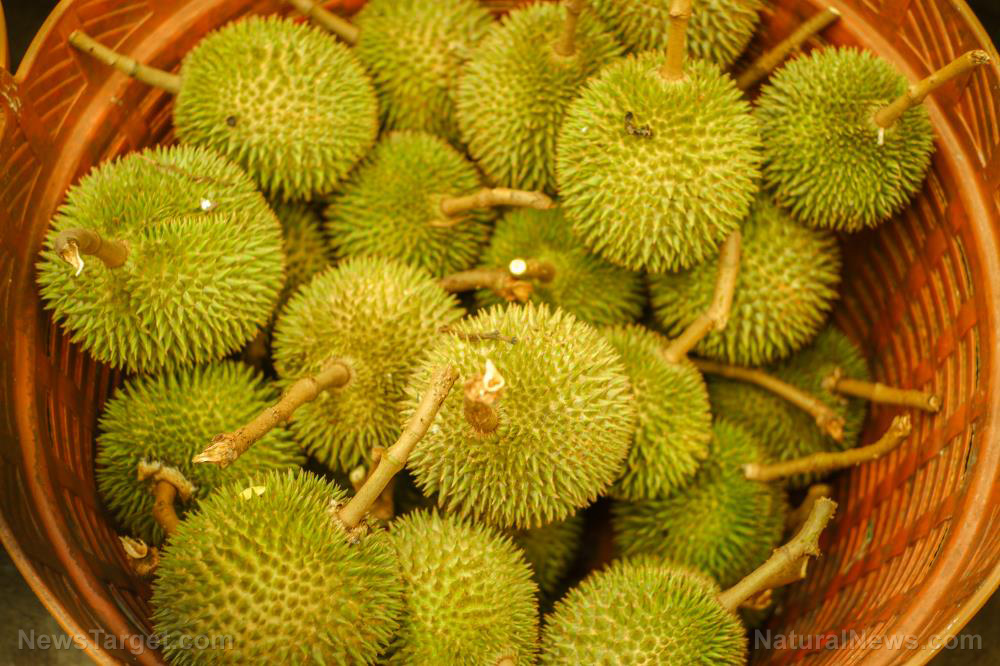
Advertisement
Fermented foods and beverages are considered traditional foods in many cultures and are well-known for their beneficial properties. Foods that undergo fermentation are excellent sources of beneficial microorganisms known as probiotics, and these microbes are said to play a role in immunity and boost digestive health. These are some of the many reasons why fermented food items are listed as components of a healthy and well-balanced diet.
Vegetables and liquids like tea are the most commonly fermented foods today. But research has found that the fermentation process can also be used to make health-promoting products out of less-popularly eaten foods, such as the fruit durian. Durian is a superfood native to Southeast Asia that’s notorious for its unpleasant smell, which many people find unappetizing. This tropical fruit, however, boasts an amazing nutritional profile, as well as a history of use in traditional medicine.
In a recent study, researchers from China and Singapore found that fermenting durian pulp using a combination of probiotics and a yeast called Williopsis saturnus var. saturnus is a good way of producing a functional (and edible) product from the underappreciated fruit. They believe that this non-dairy durian-based drink can boost the levels of beneficial bacteria present in the human gut.
A good way to make use of the “king of the fruits”
The friendly bacteria that dwell in the human gut do many good things for the body, such as help with digestion and nutrient absorption. They also help keep harmful microbes under control. Of the millions of microorganisms found in your digestive system, two genera of good bacteria stand out: Bifidobacterium and Lactobacillus. Bacterial species that belong to either one of these genera are also commonly used to make fermented food products.
For instance, B. animalis, which can be found in the colon, is highly resistant to acid and is well-suited for the fermentation of milk. Two strains of this bacterium are used commercially: BB-12, which is known to boost immunity, and DN-173 010, which can help with common digestive issues, irritable bowel syndrome (IBS) and constipation.
Another example is L. casei, a known regulator of the human digestive system. L. casei is commonly found in probiotic supplements and is used to prevent or treat diarrhea. Research suggests that L. casei helps not only with issues, such as IBS, lactose intolerance and inflammatory bowel disease (IBD), but also with other health problems, such as allergies, Lyme disease and rheumatoid arthritis, to name a few.
In their study, the researchers investigated the effects of the sequential inoculation of W. saturnus var. saturnus (NCYC 22) on the growth and survival of B. animalis and L. casei during the fermentation of durian pulp. NCYC 22 is an anti-fungal yeast that has been found to prevent food spoilage due to molds and yeast during storage.
The researchers found that inoculation of NCYC 22 after B. animalis did not produce significant results because the yeast died quickly after inoculation. But with L. casei, sequential inoculation of the yeast was more fruitful. The yeast not only improved the survival of L. casei, but it also improved the fermentation of durian pulp.
The researchers noted that the addition of NCYC 22 also increased the production of alcohols and other volatile chemicals, which is likely to have a positive effect on the taste of the fermentation product. Despite the possible enhancement of its taste, however, the smell of durian still remained. But the researchers are confident that combining the yeast NCYC 22 with probiotics when fermenting durian pulp is a good way of increasing the amount of good bacteria in the final product.
“[The] use of probiotics and W. saturnus to ferment durian pulp could act as a potential avenue to develop a novel non-dairy durian-based functional beverage to deliver probiotics,” the researchers wrote in their report, which appeared in the International Journal of Food Microbiology.
The health benefits of durian
The durian fruit — if you’ve never encountered one — is a large fruit with a creamy, custard-like flesh and large, edible seeds (when cooked). According to people who can tolerate its funky smell, the fruit tastes wonderful, like a combination of cheese, almonds, garlic and caramel. The durian fruit is commonly used to make juice, soups and side dishes, as well as candies, ice cream and other types of dessert.
Besides a variety of antioxidant compounds, the durian fruit also contains the following nutrients (serving size: one cup, or 243 g of pulp):
- Protein, 4 g
- Fiber, 9 g
- Copper, 25 percent of the daily value (DV)
- Folate, 22 percent of DV
- Magnesium, 18 percent of DV
- Manganese, 39 percent of DV
- Niacin, 13 percent of DV
- Potassium, 30 percent of DV
- Riboflavin, 29 percent of DV
- Thiamine, 61 percent of DV
- Vitamin B6, 38 percent of DV
- Vitamin C, 80 percent of DV
According to studies, eating durian can help reduce your risk of cancer, lower your cholesterol levels, fight microbial infections and help with diabetes management. However, durian should not be combined with alcohol, as studies show that some compounds in durian prevent enzymes from breaking down ethanol. Consuming both simultaneously can cause vomiting, heart palpitations and nausea.
Acquaint yourself with this superfood and try to add it to your diet to boost your nutrient intake and nourish the friendly bacteria in your gut.
Sources:
Advertisements







